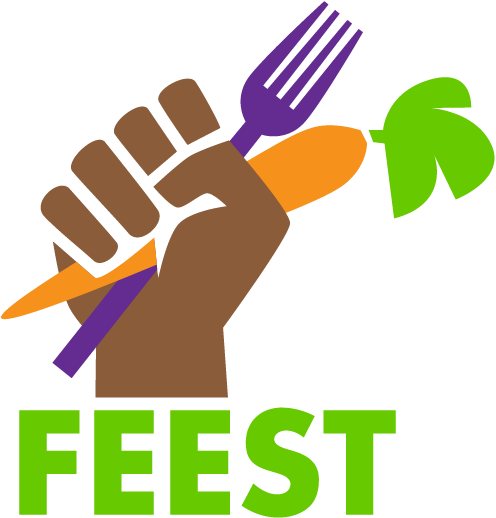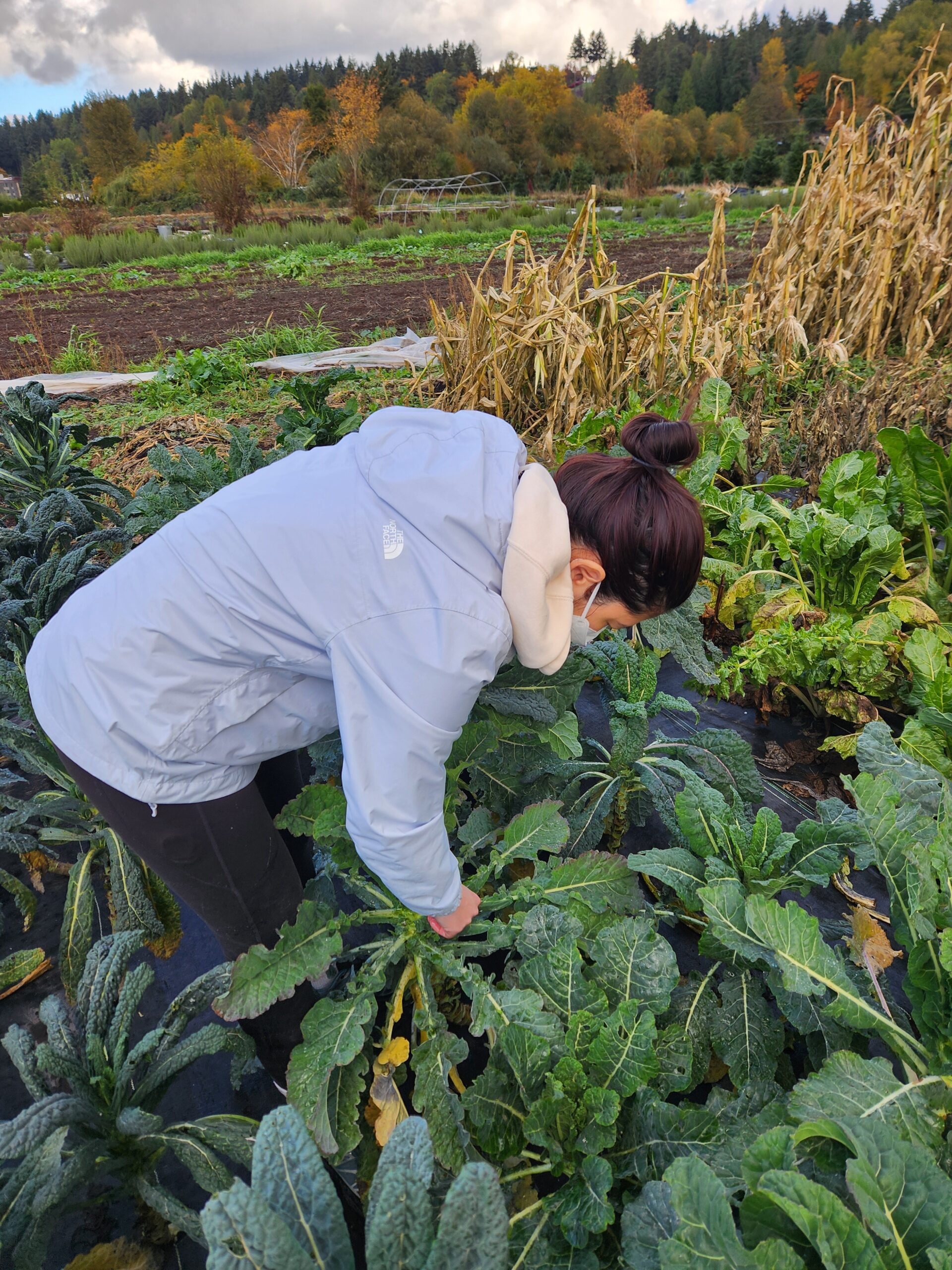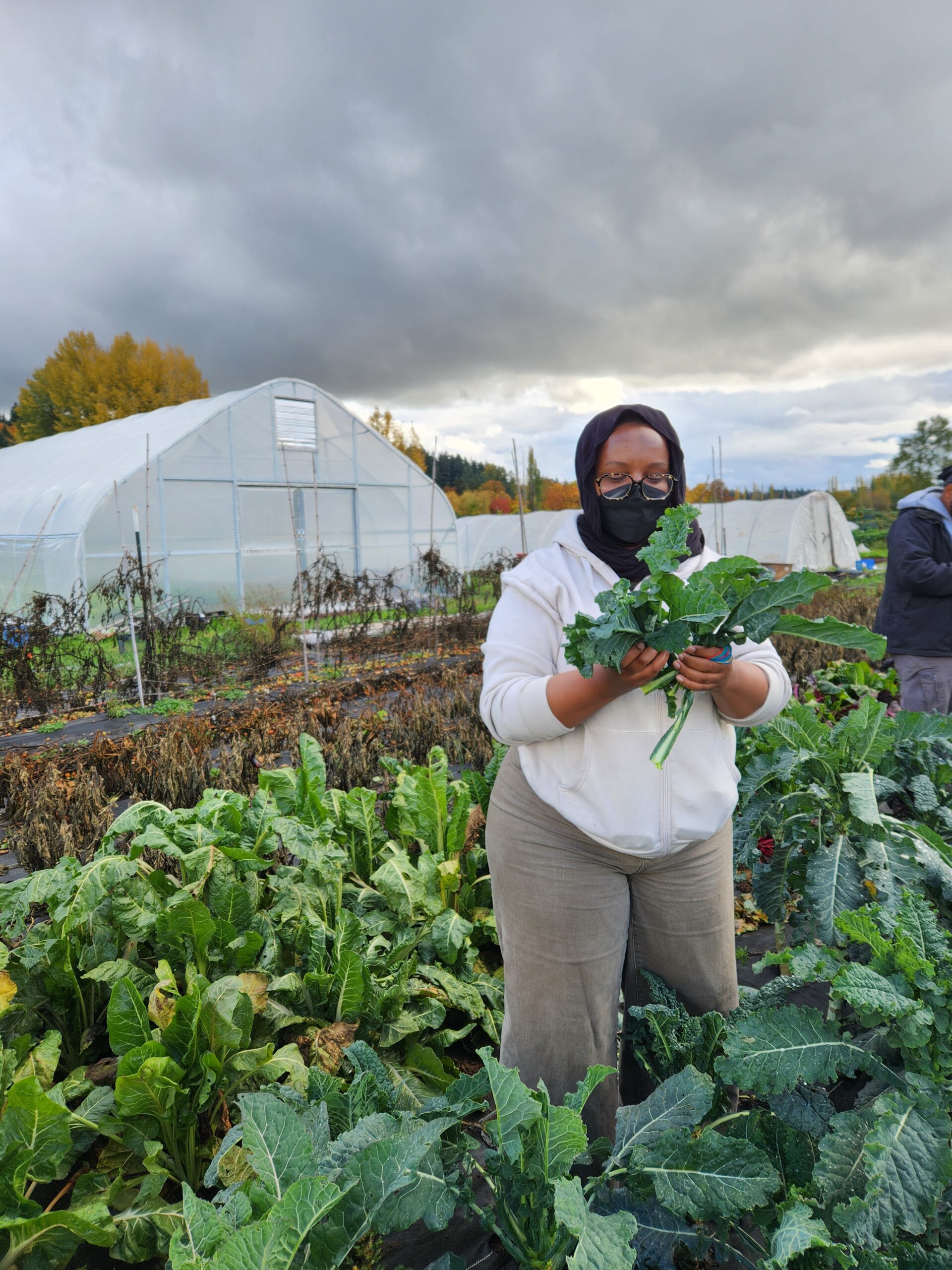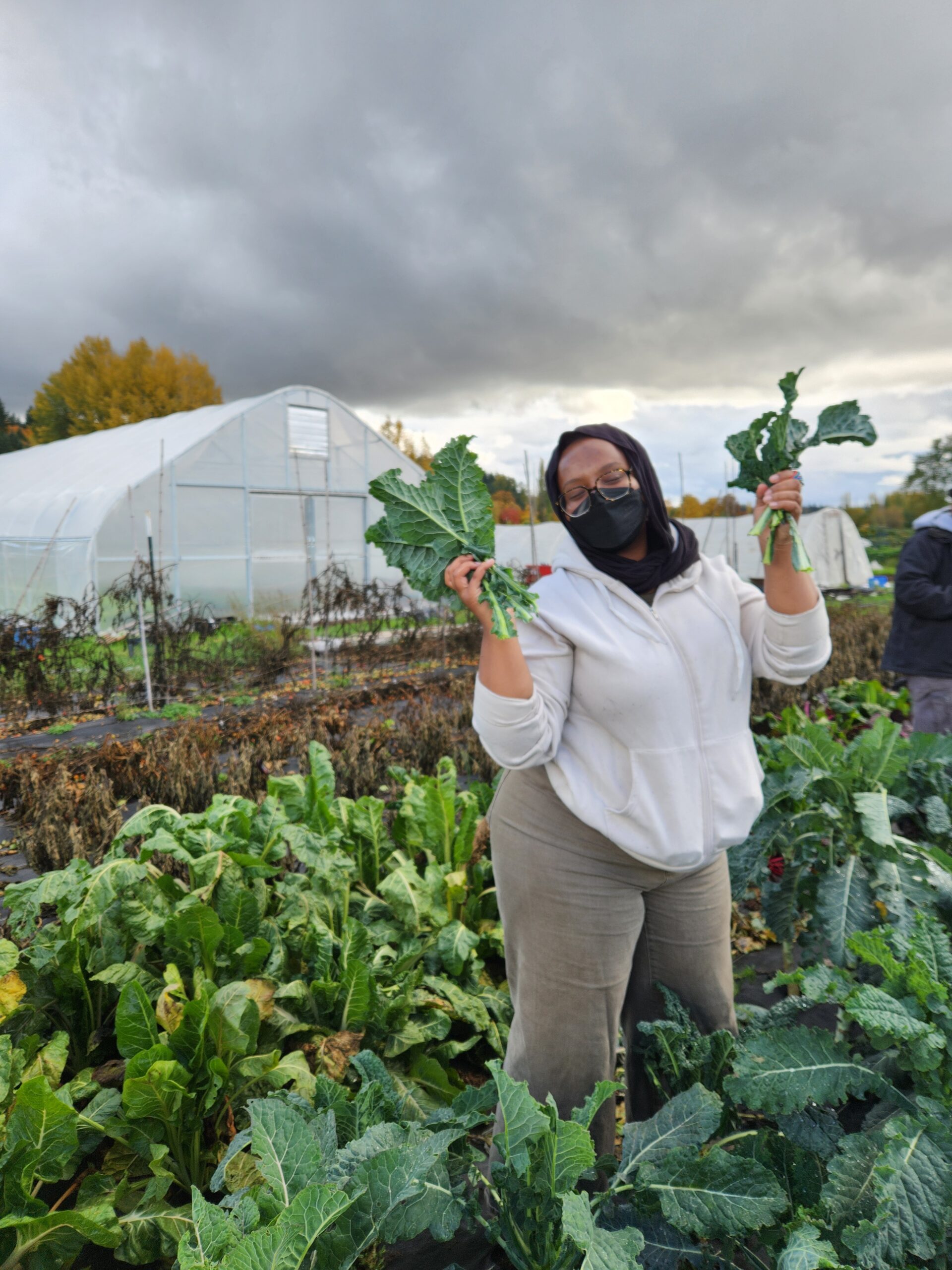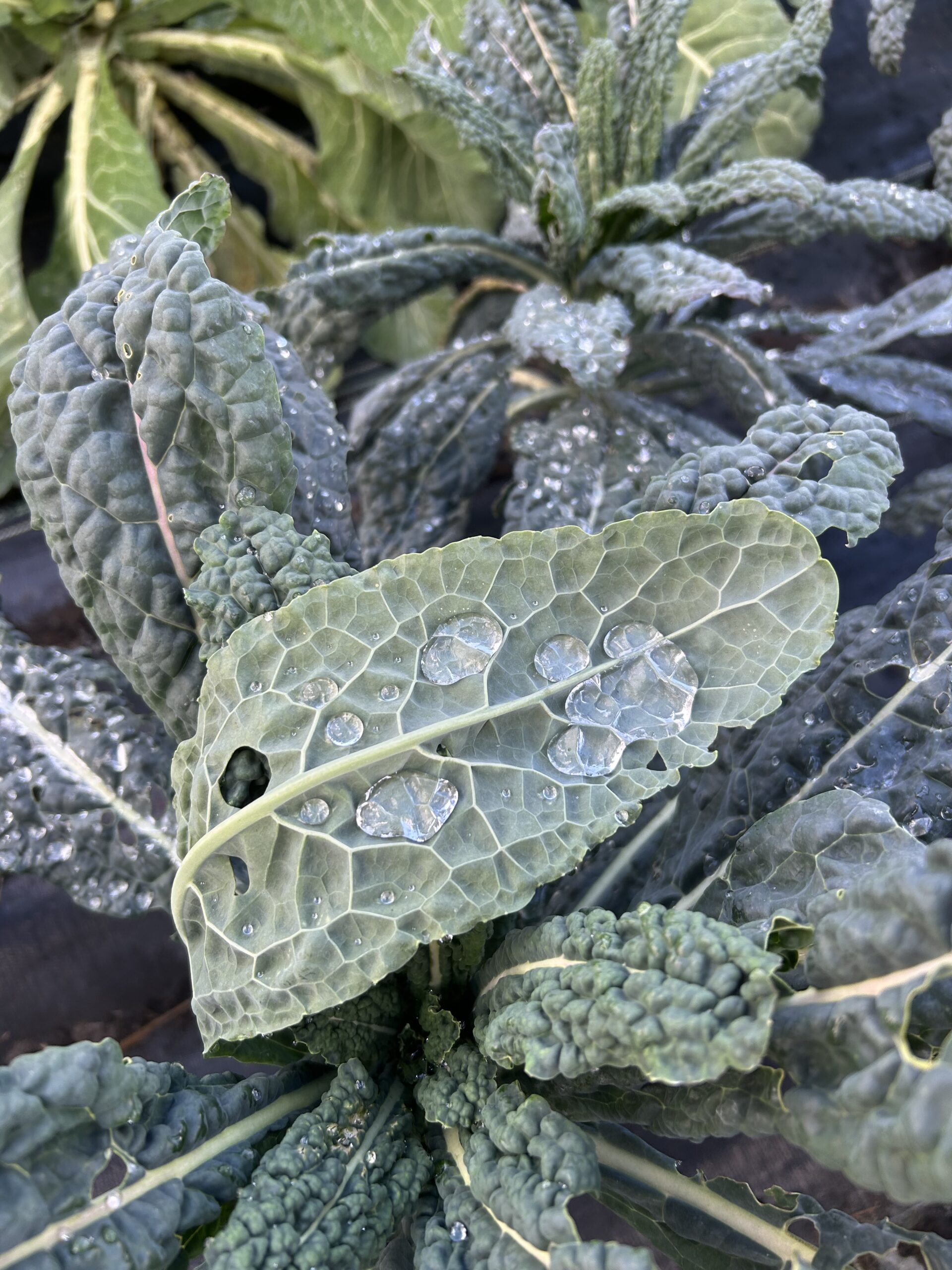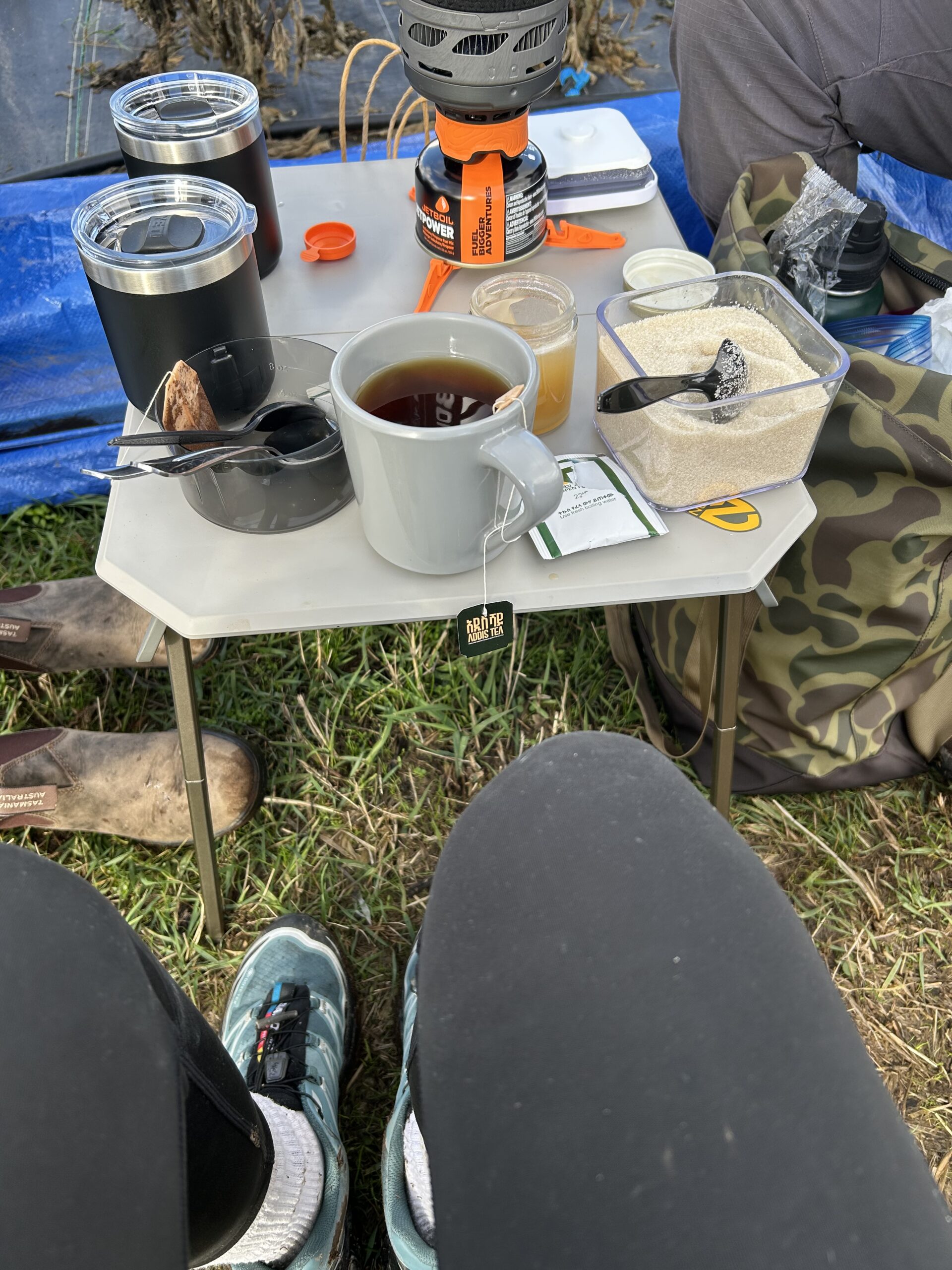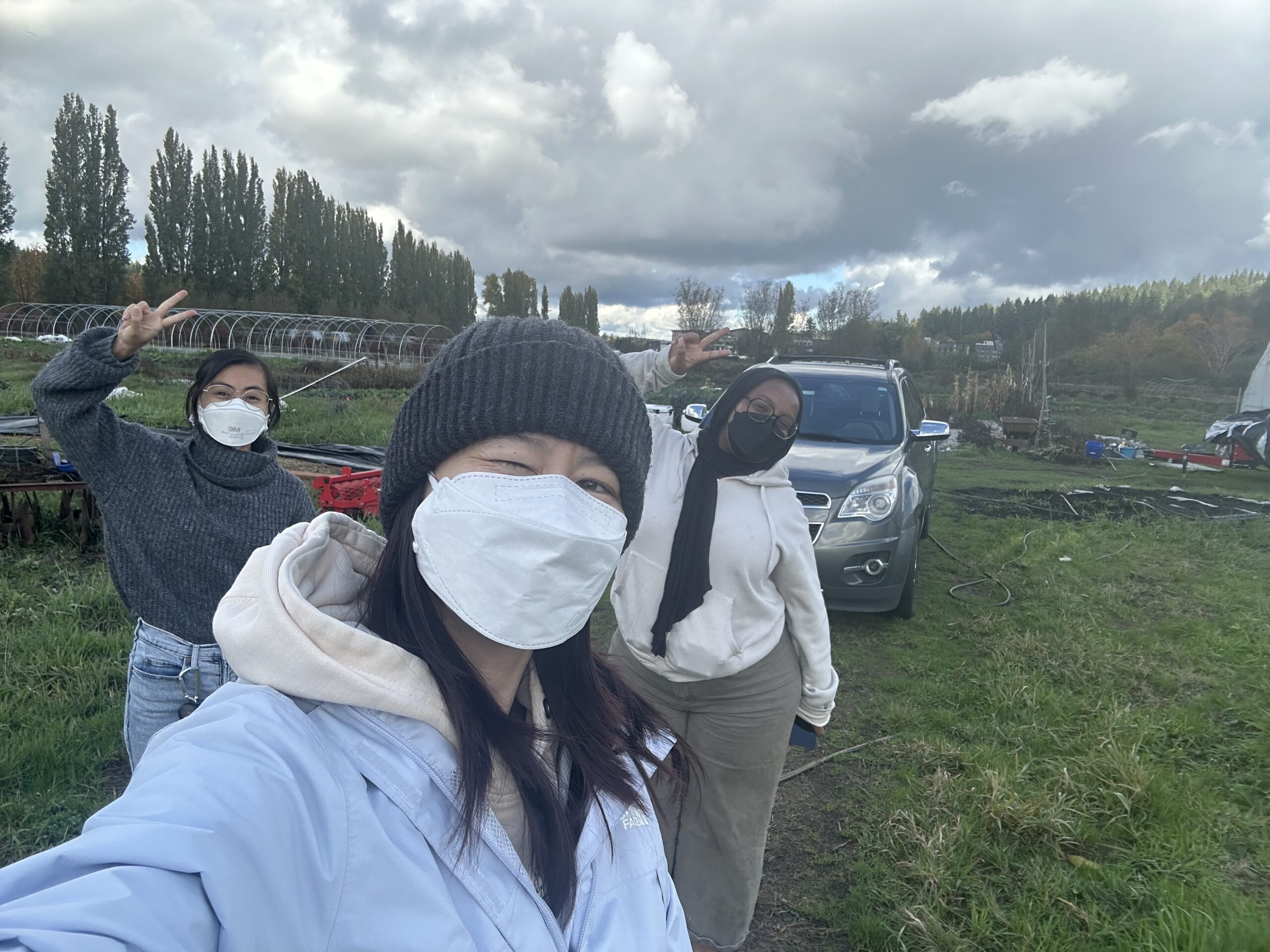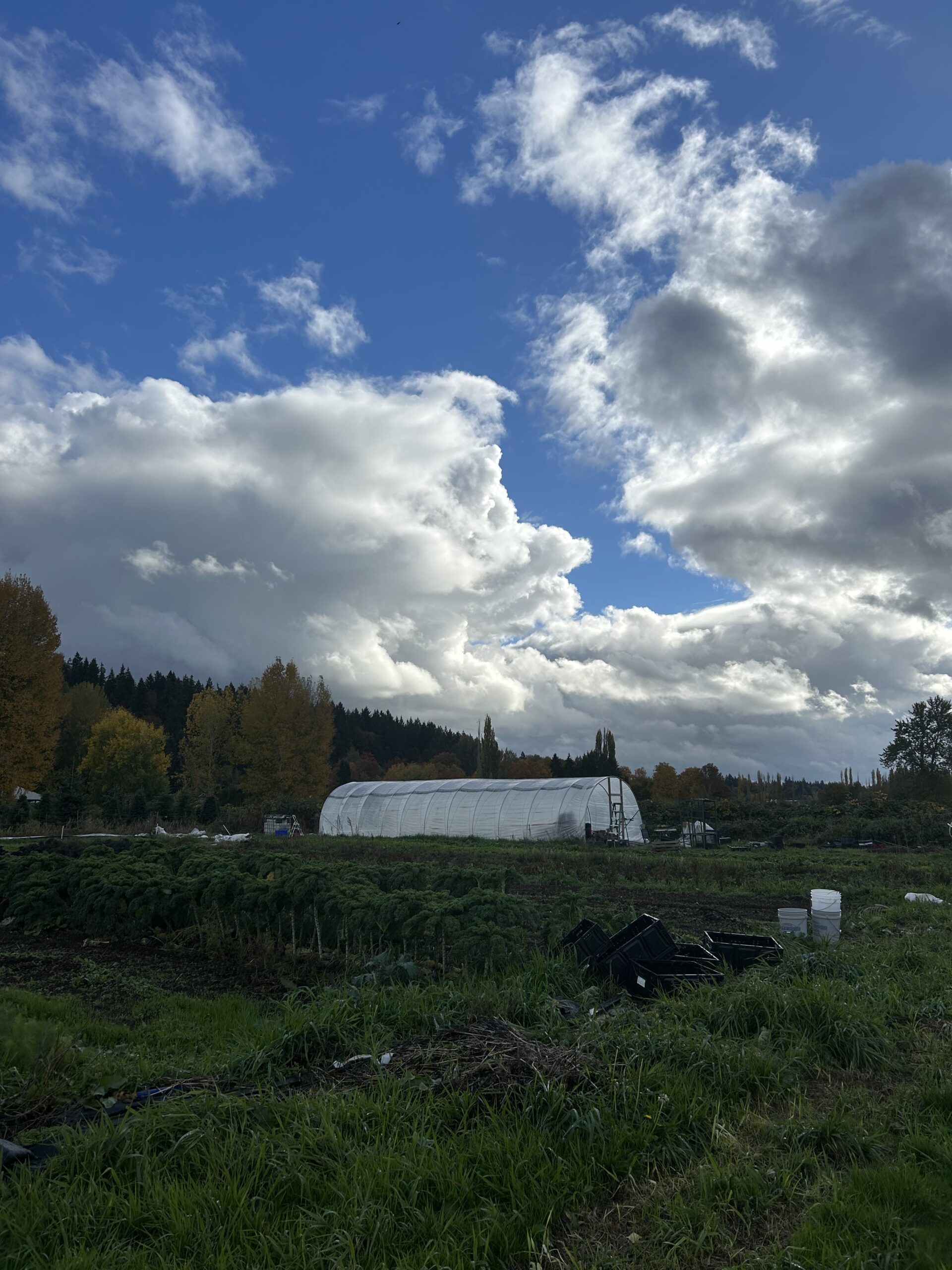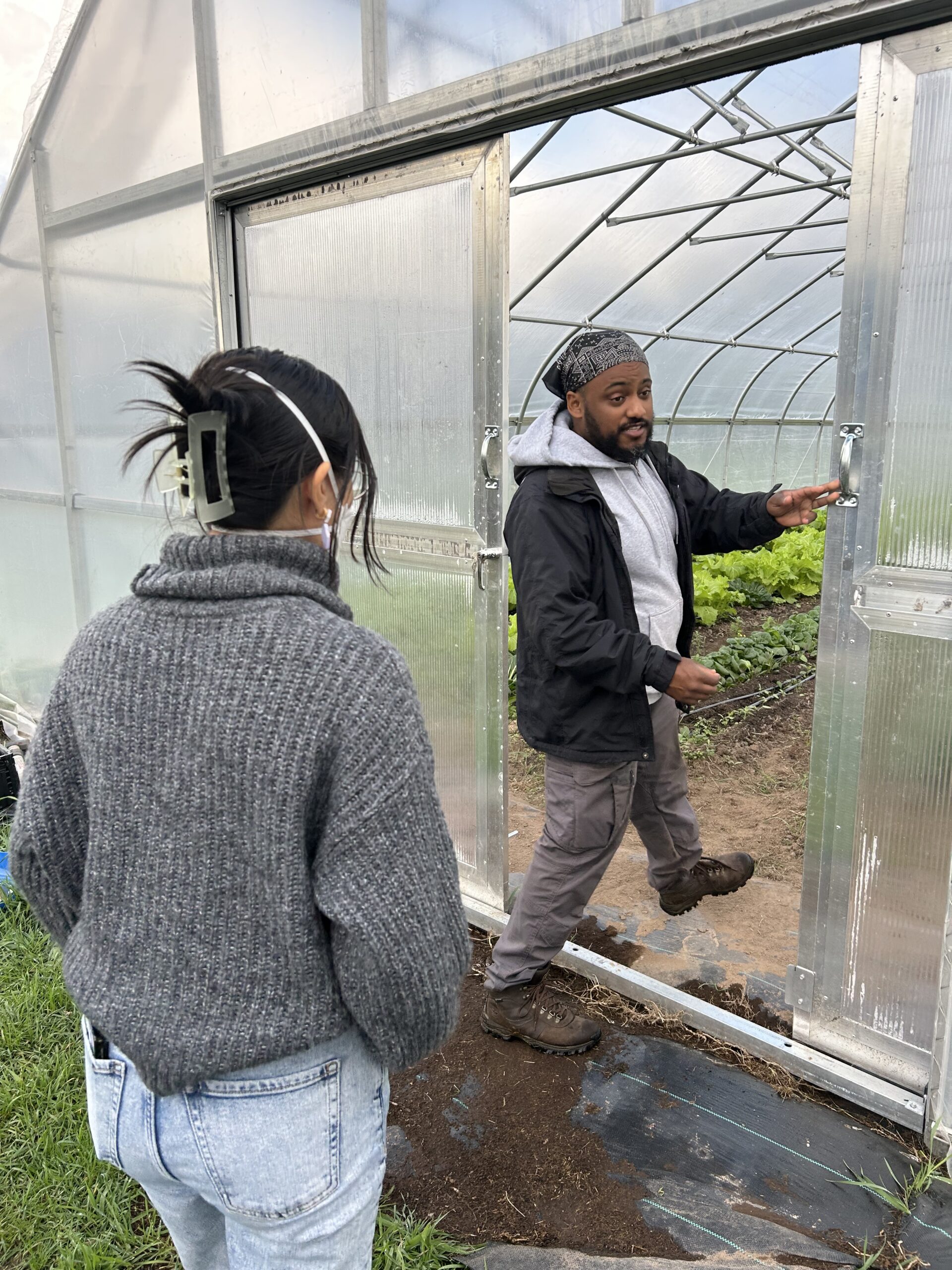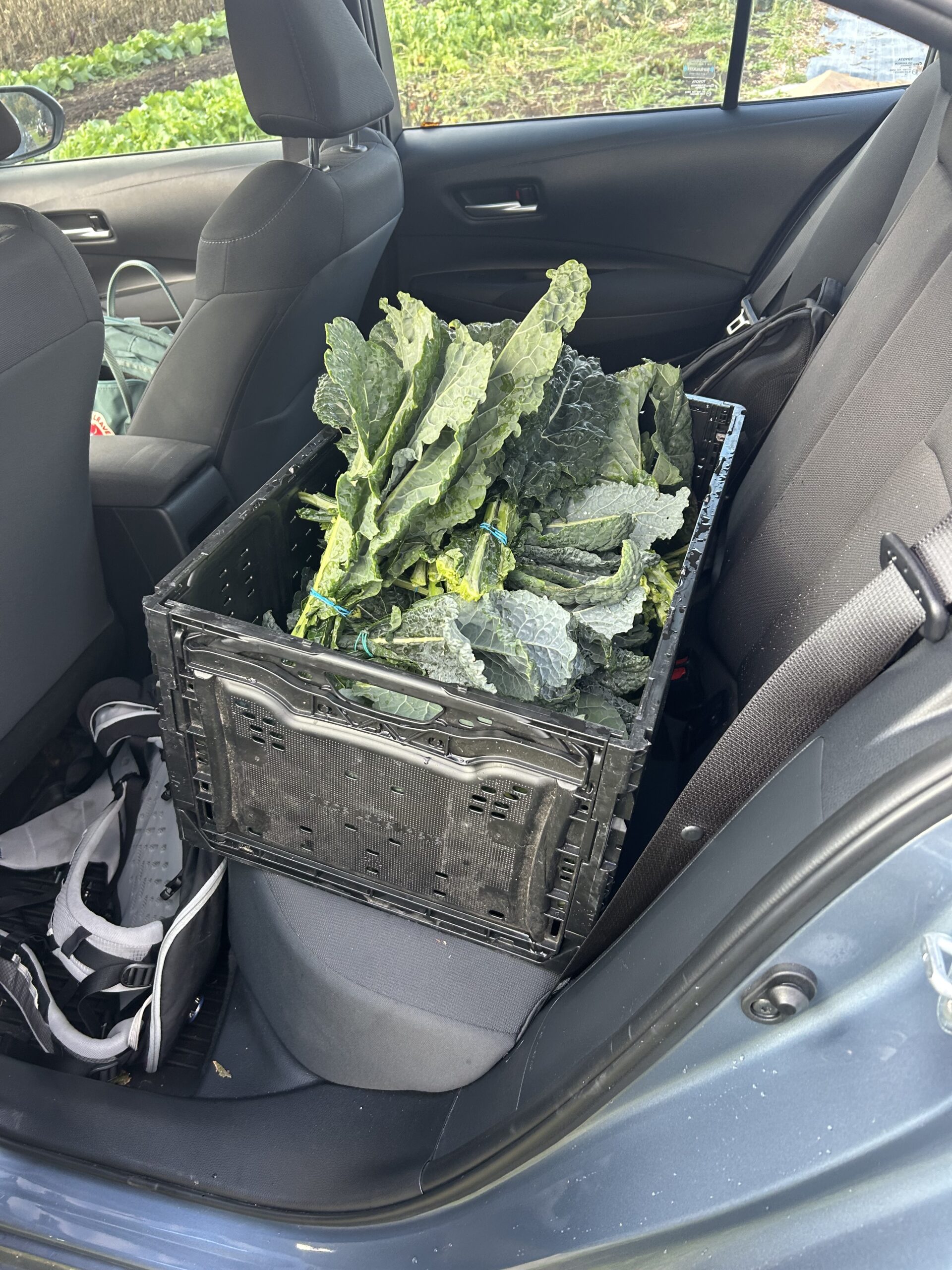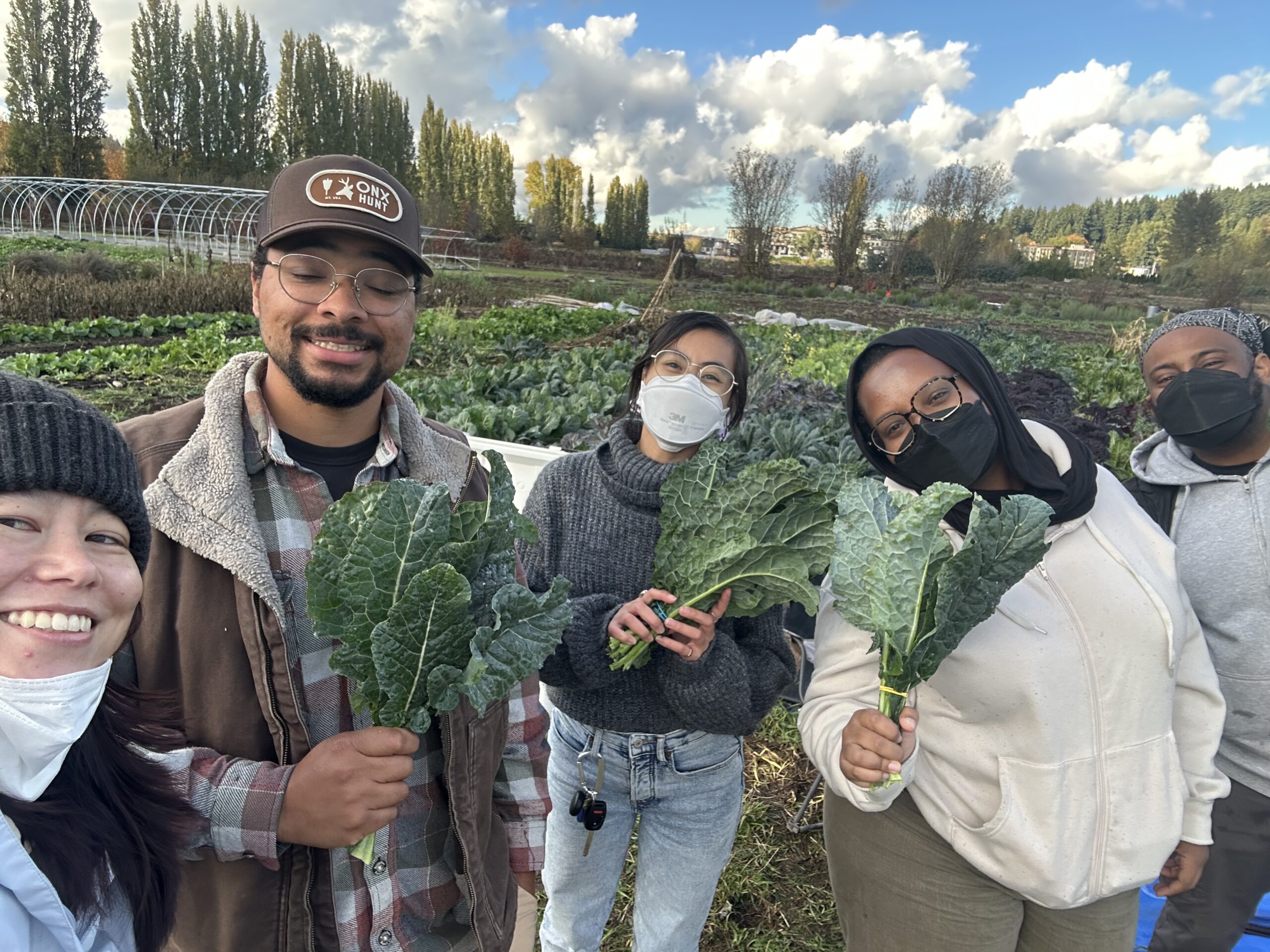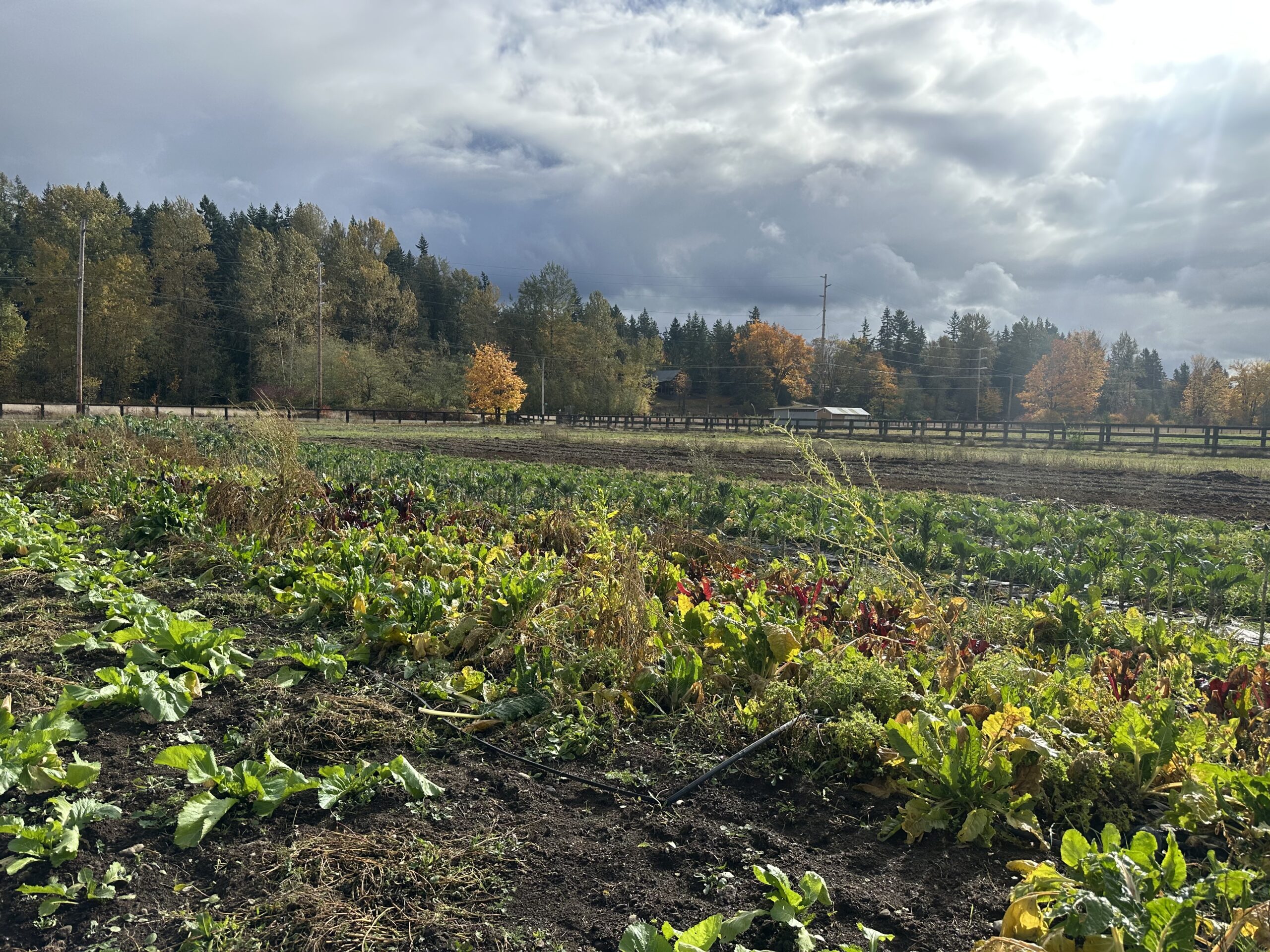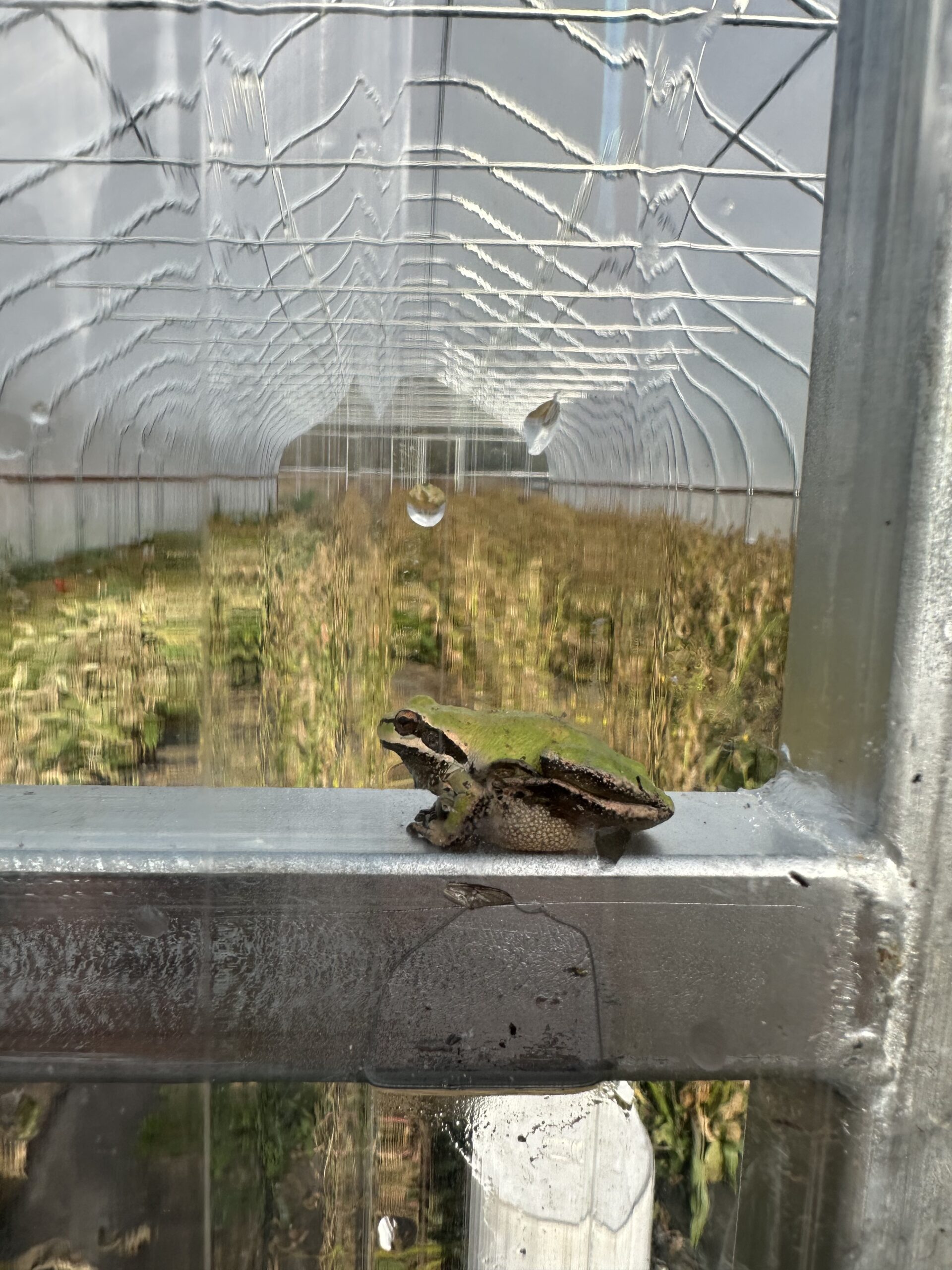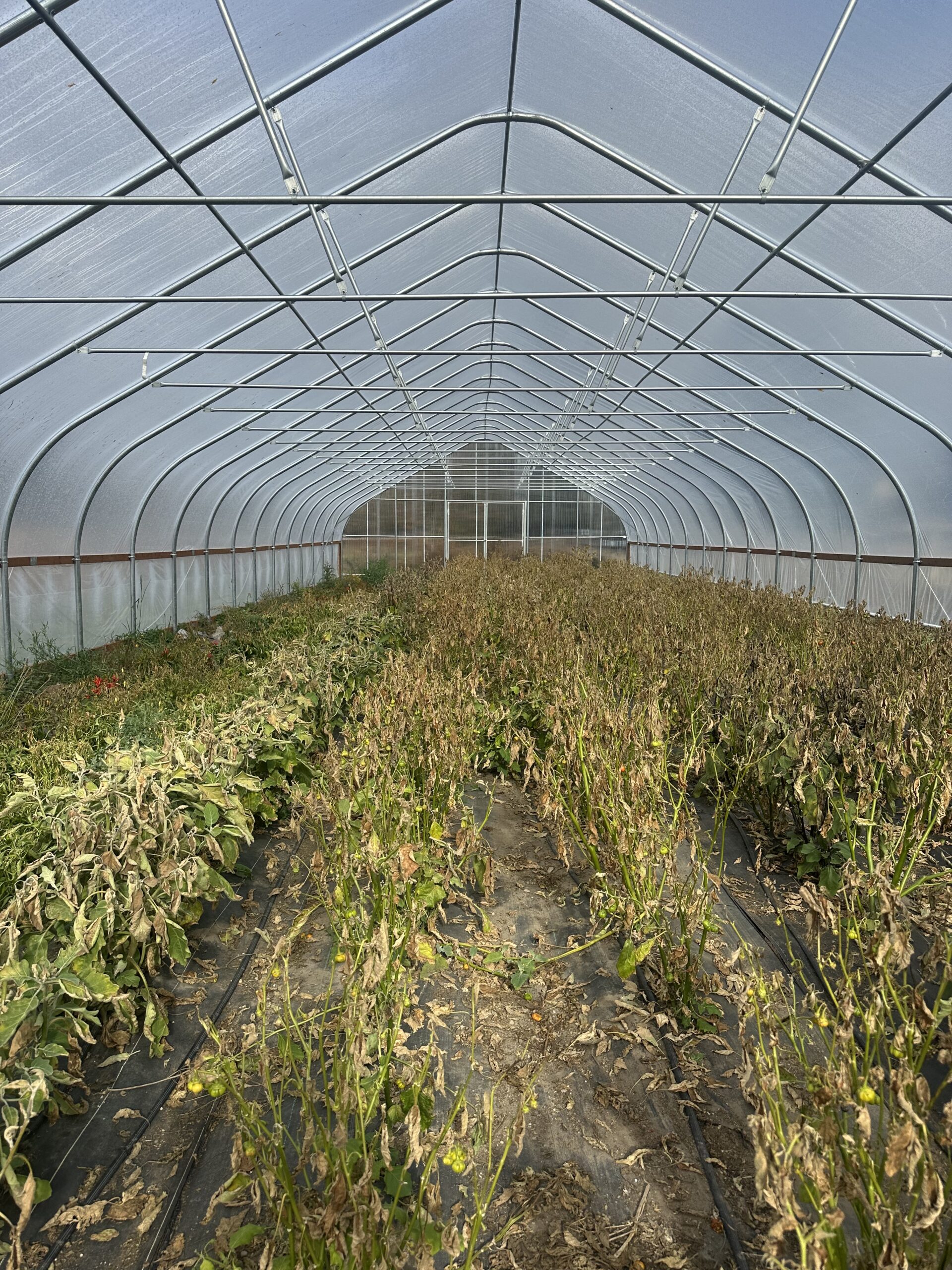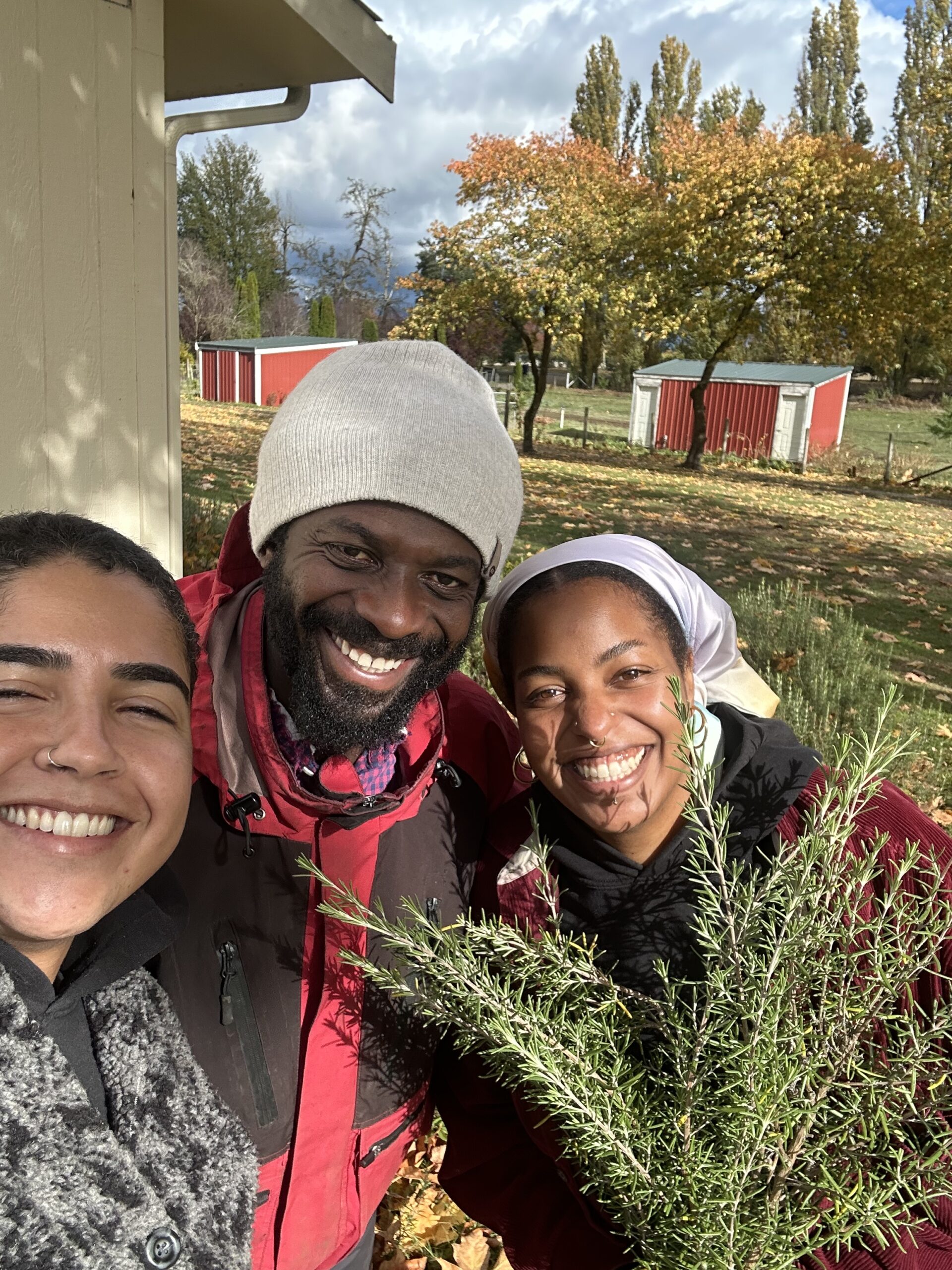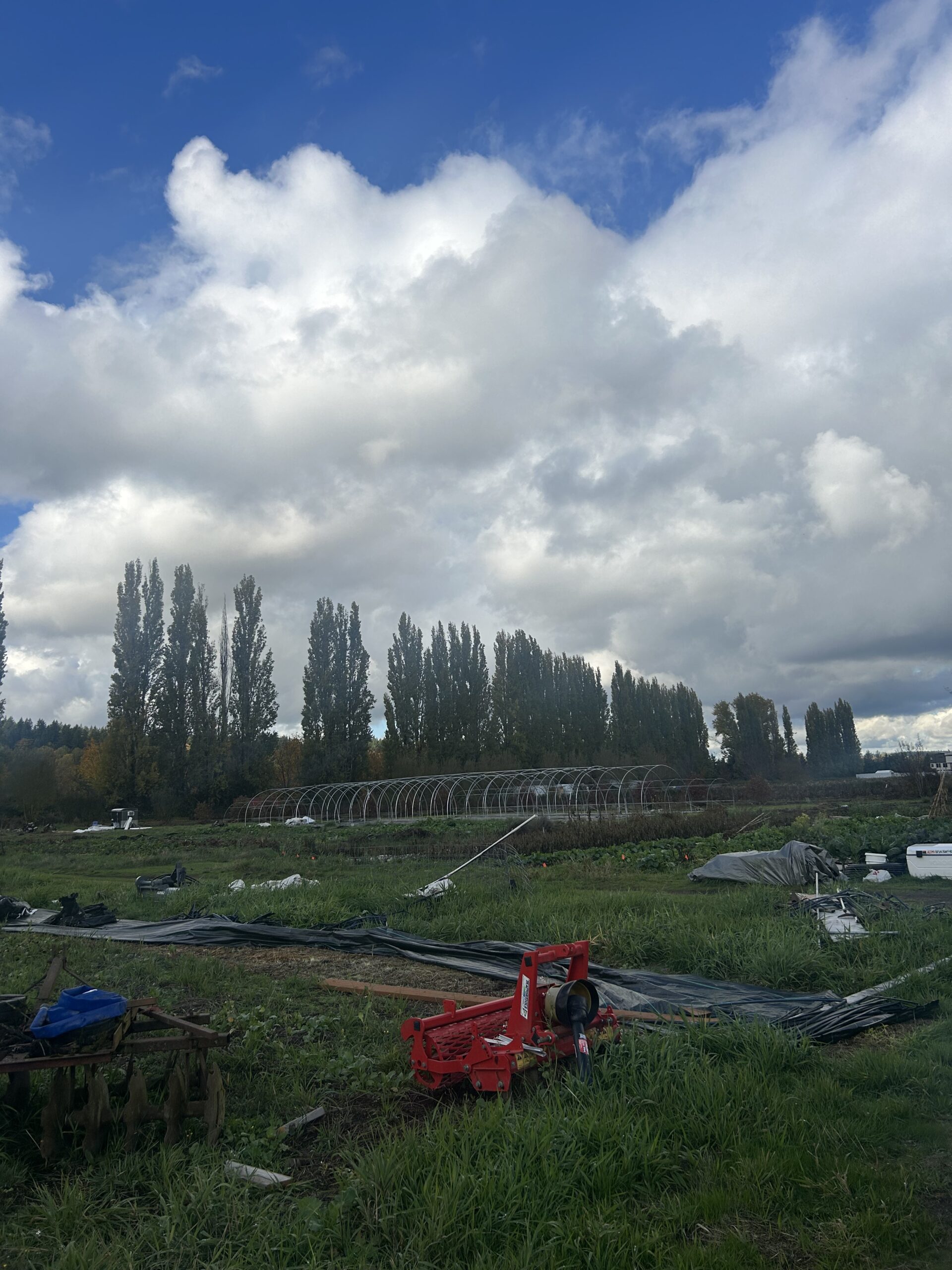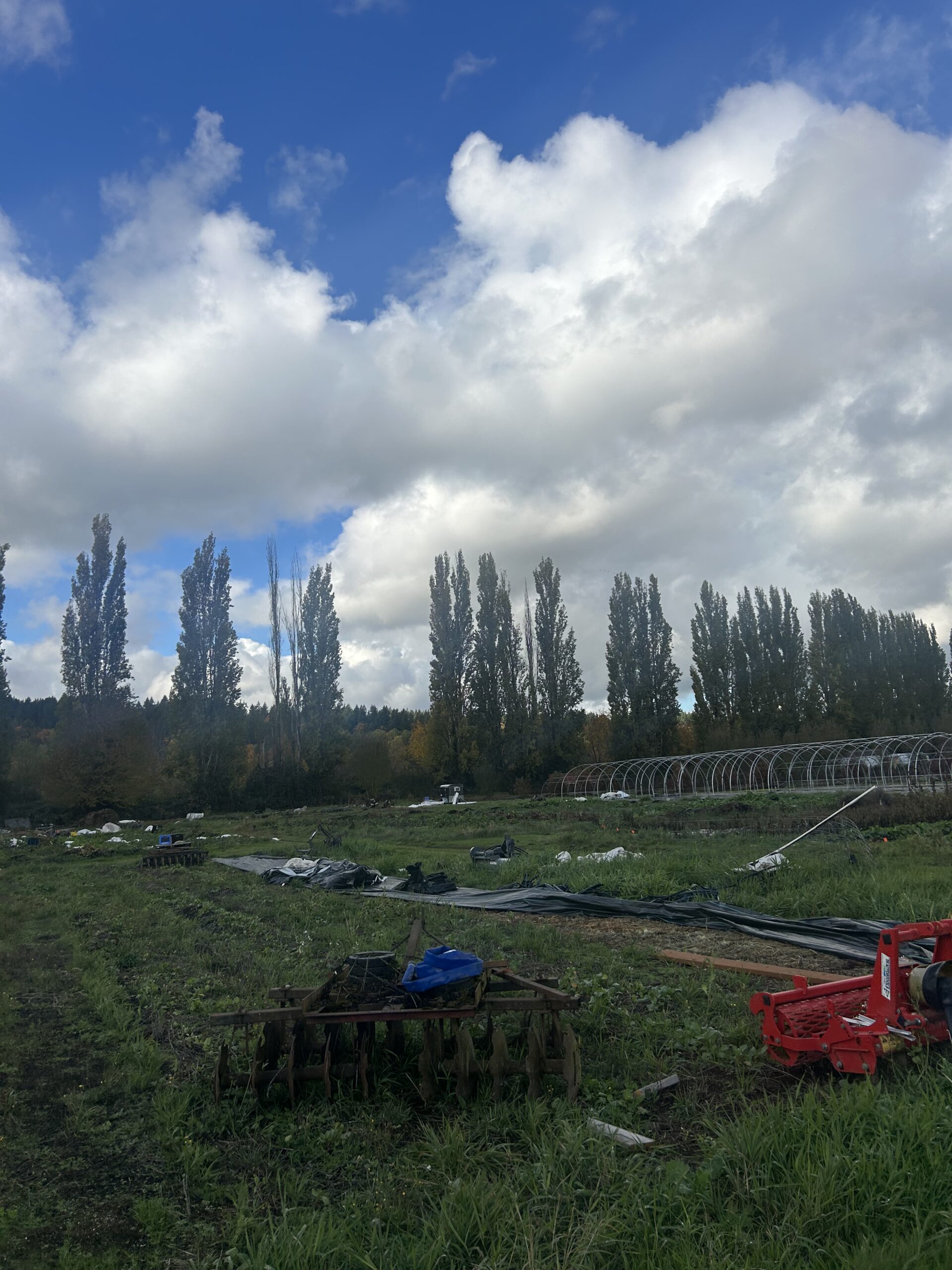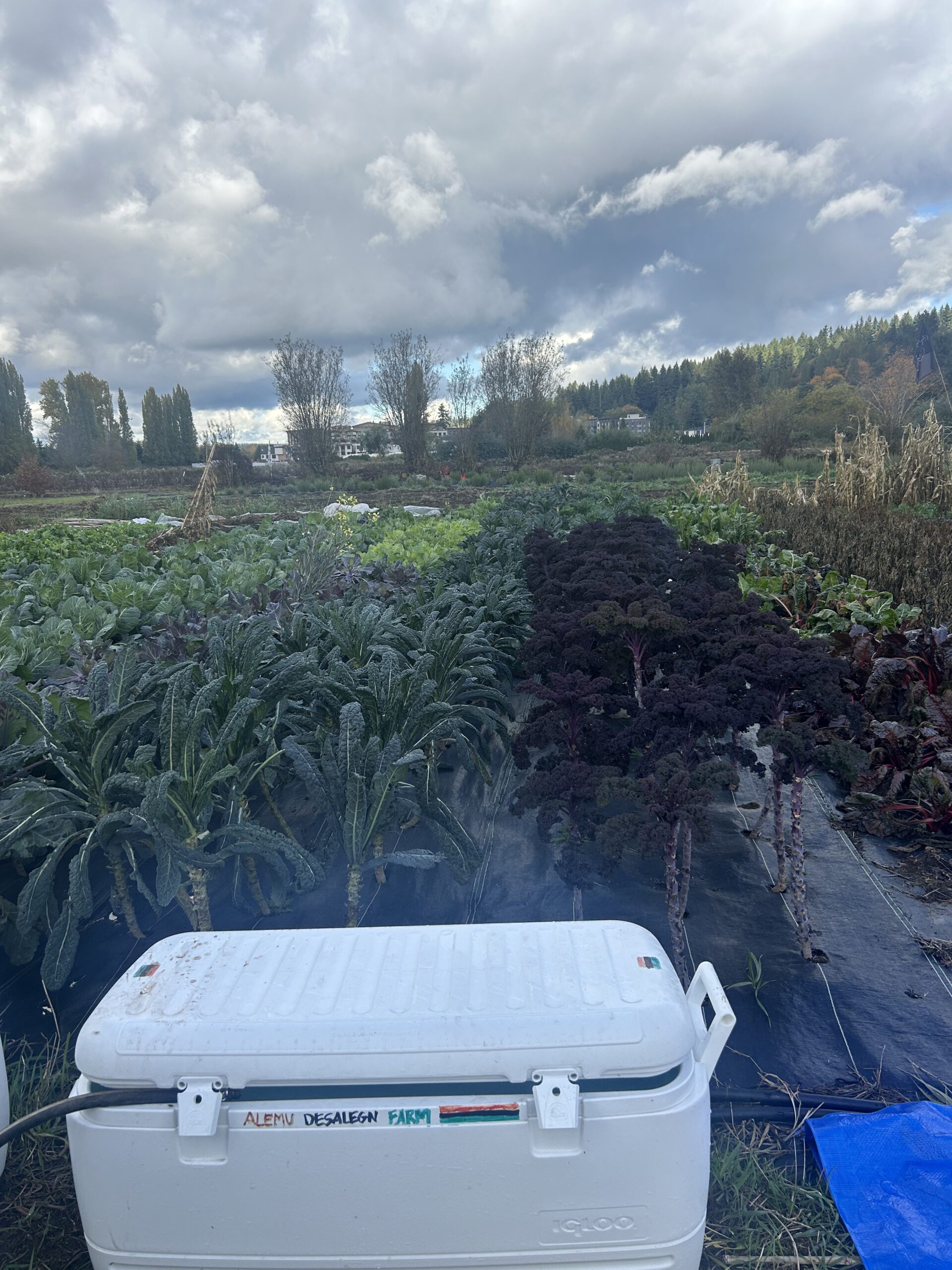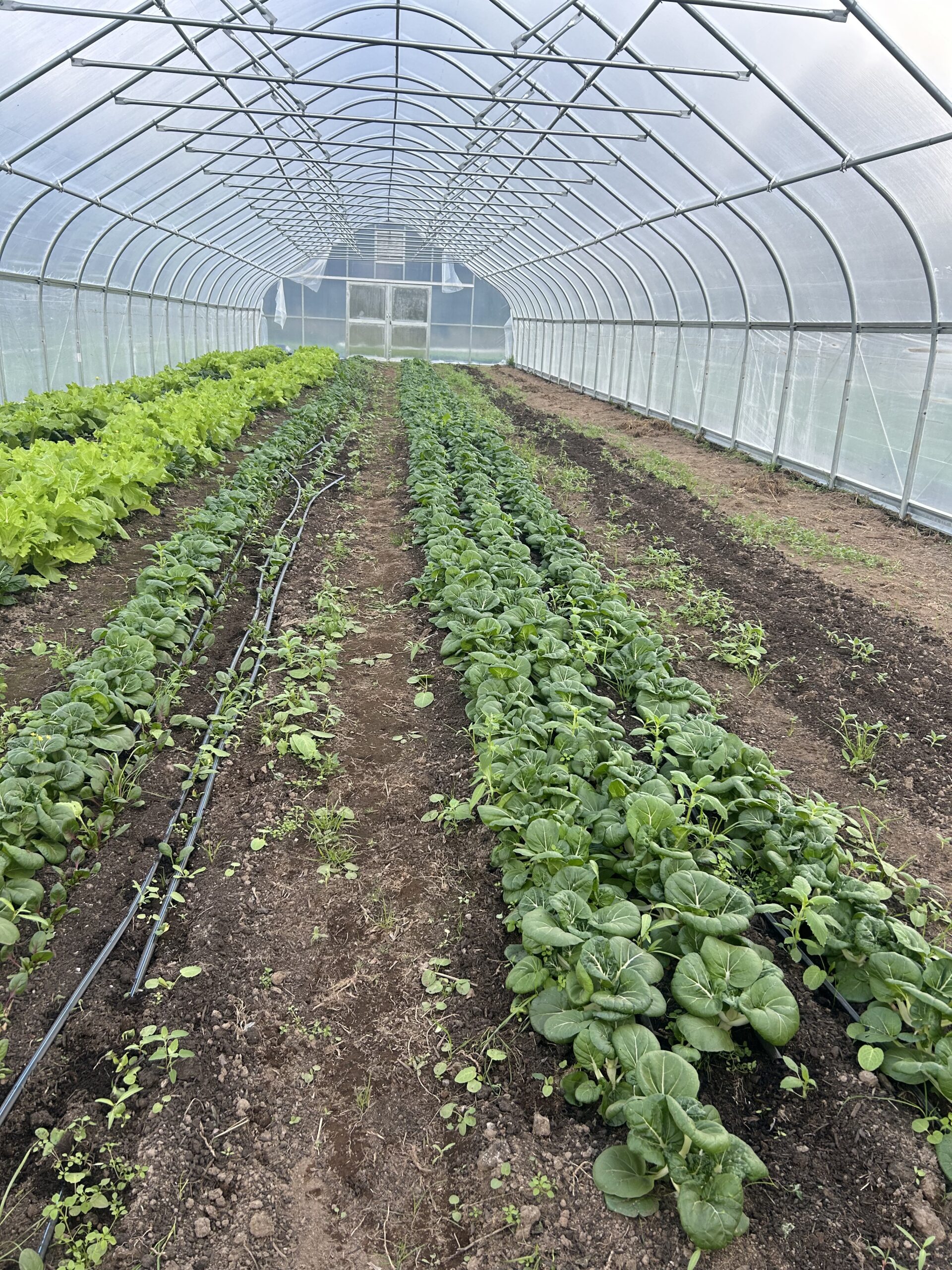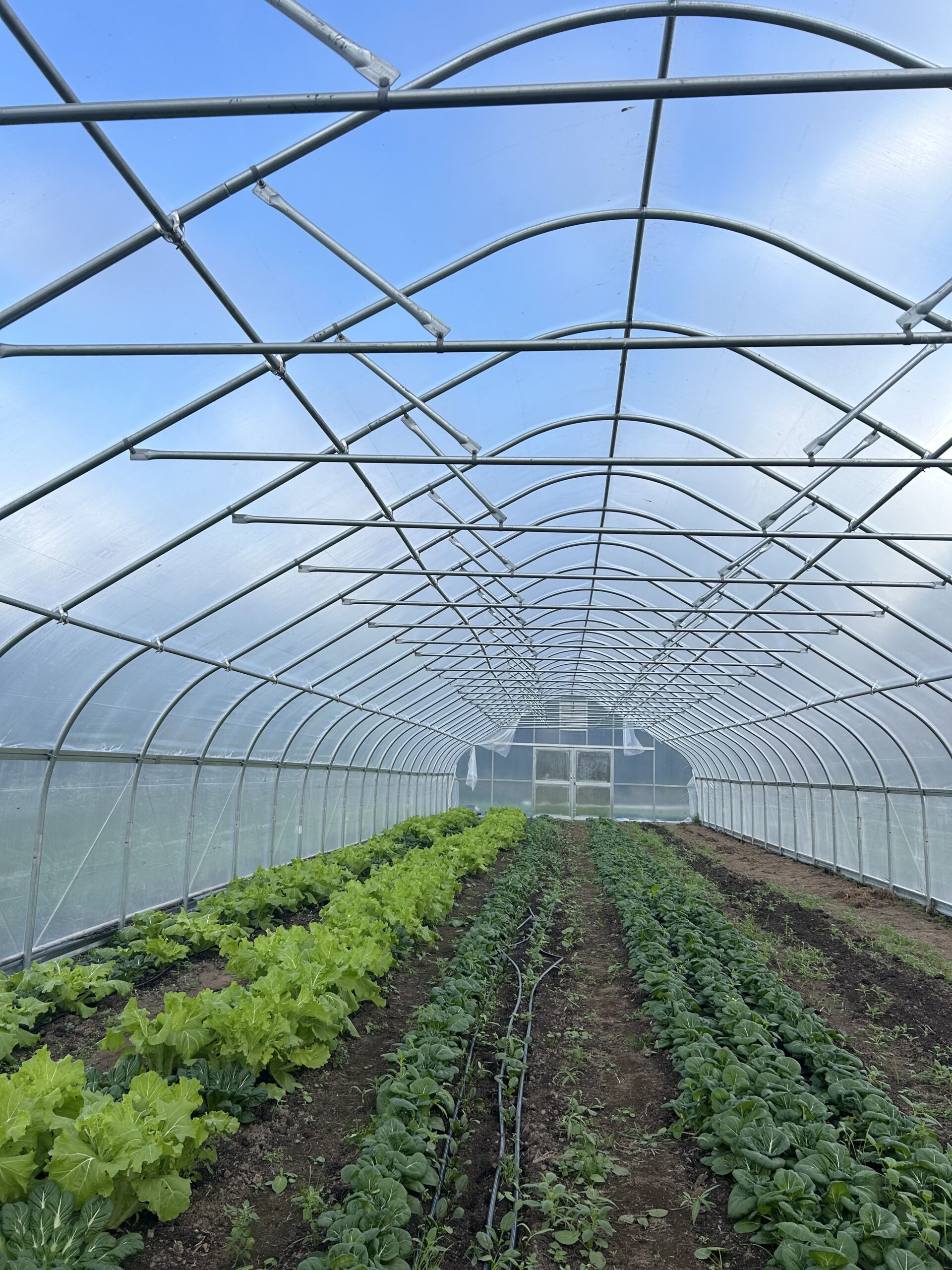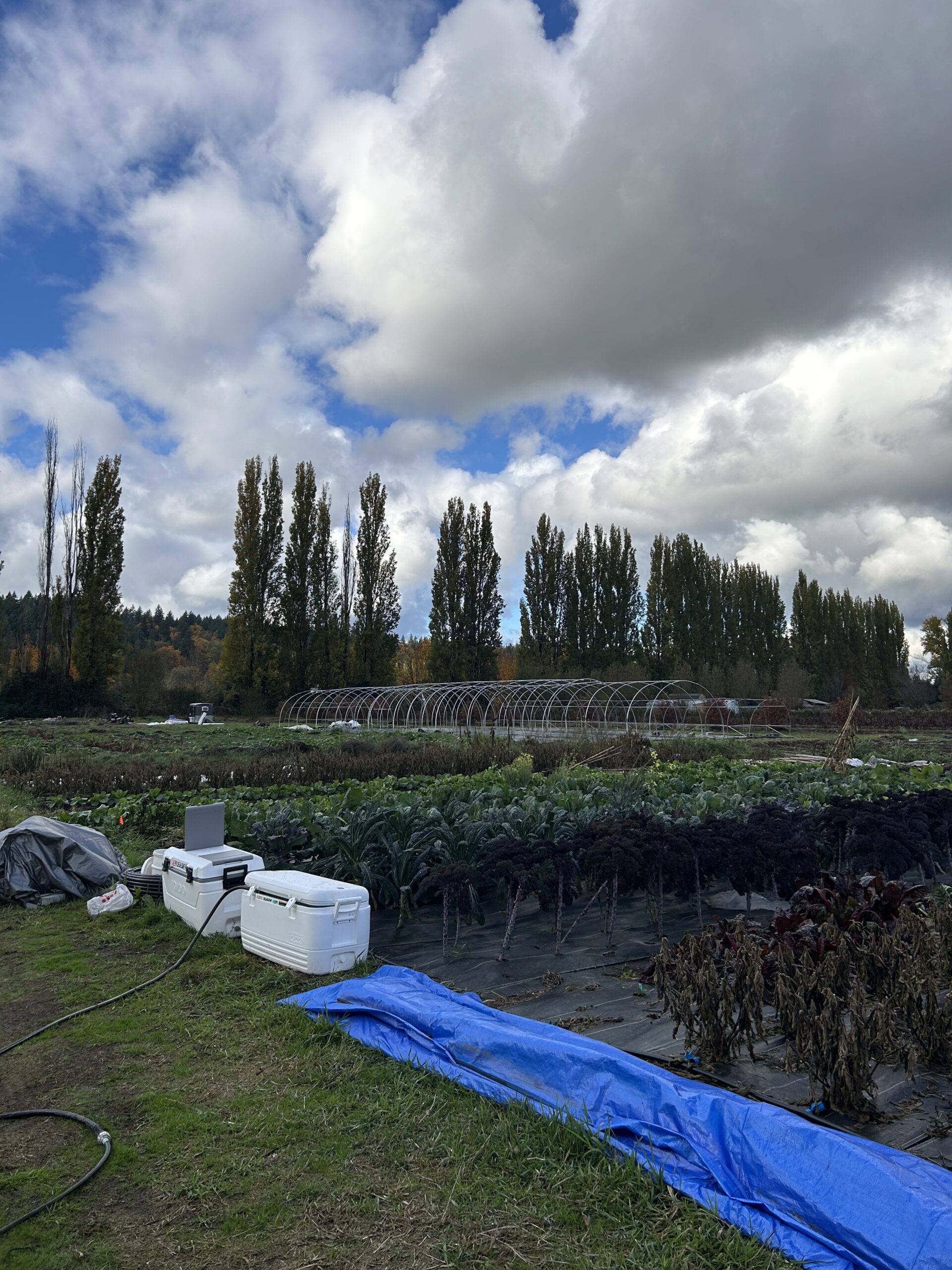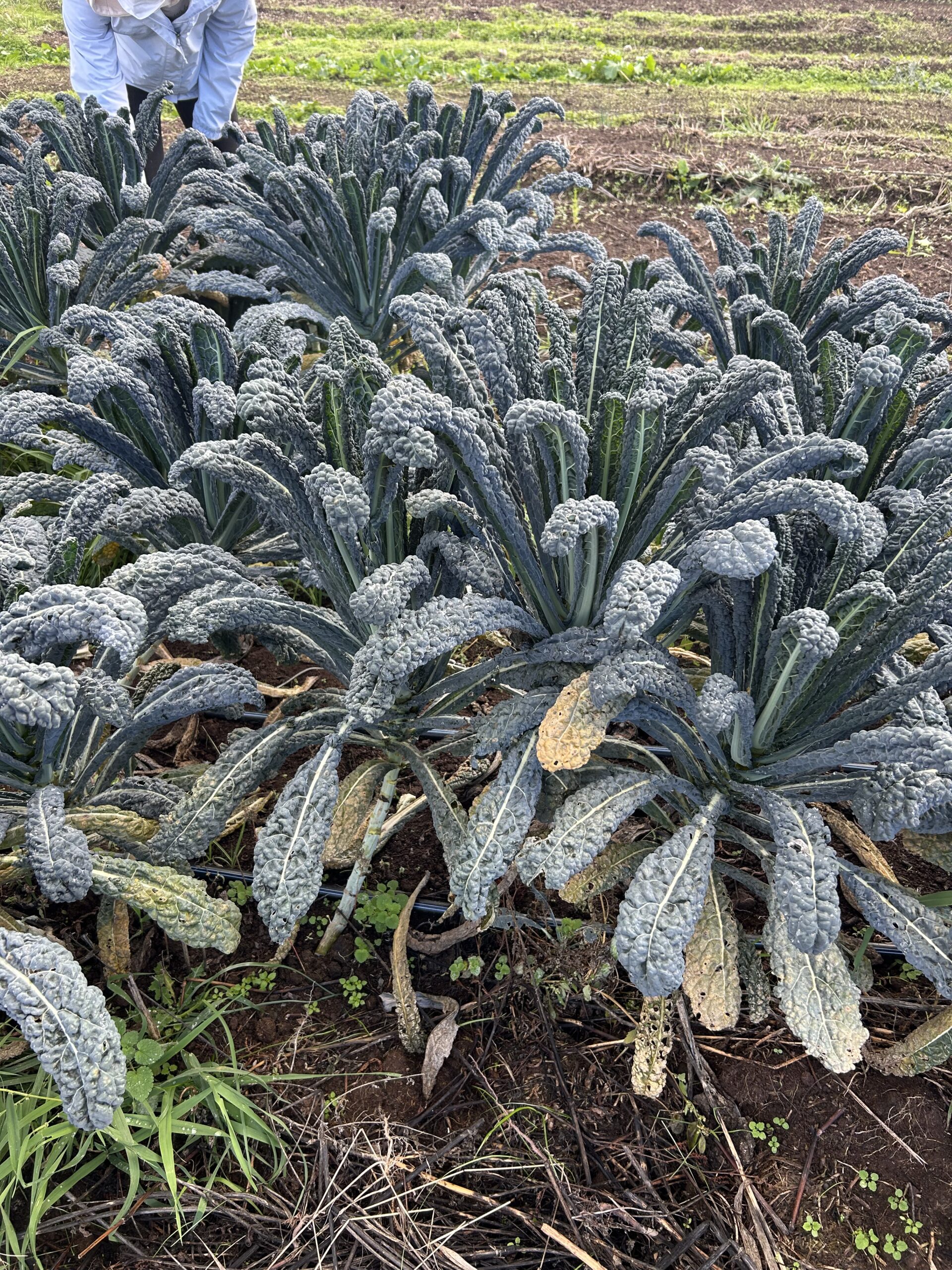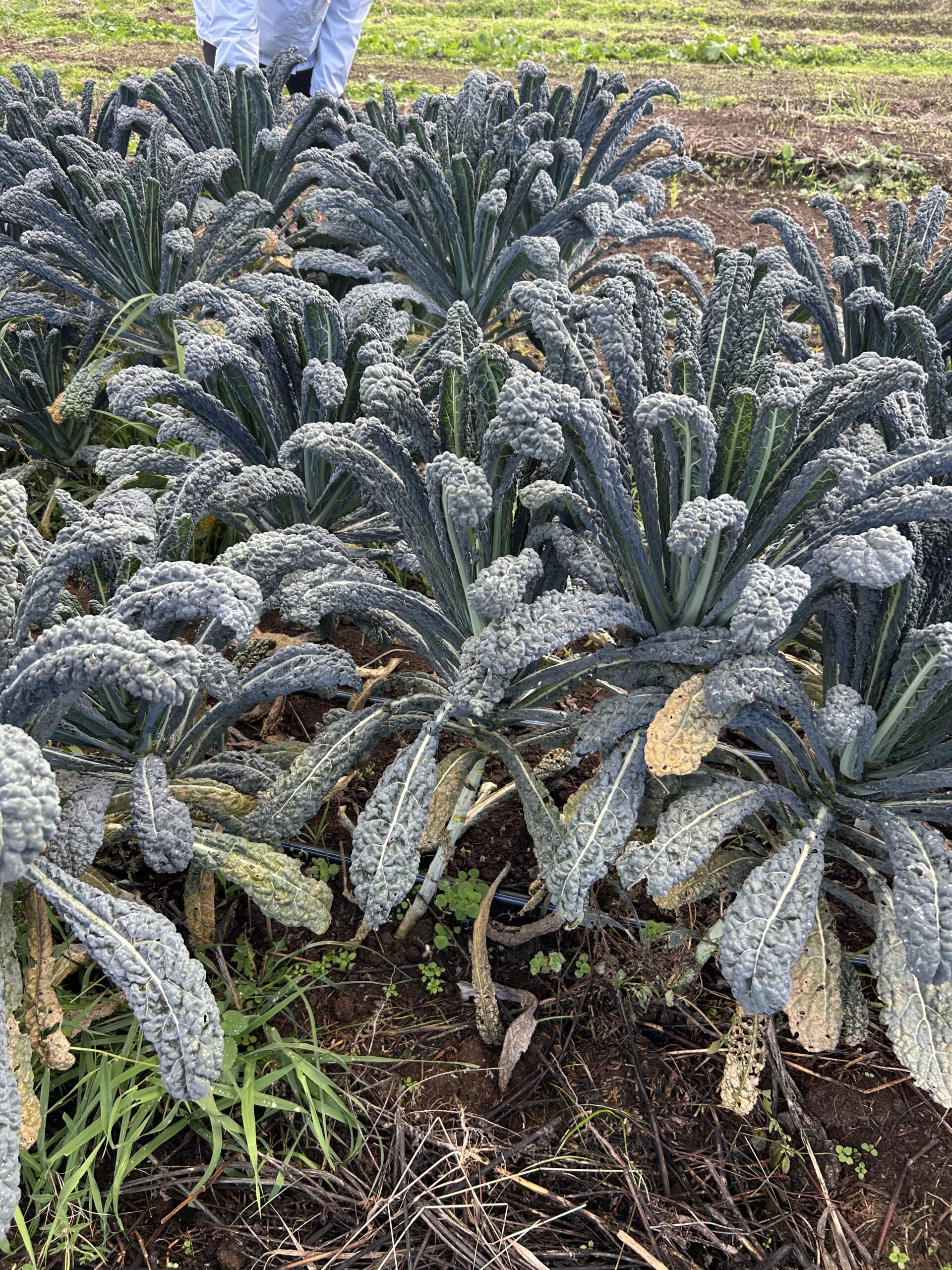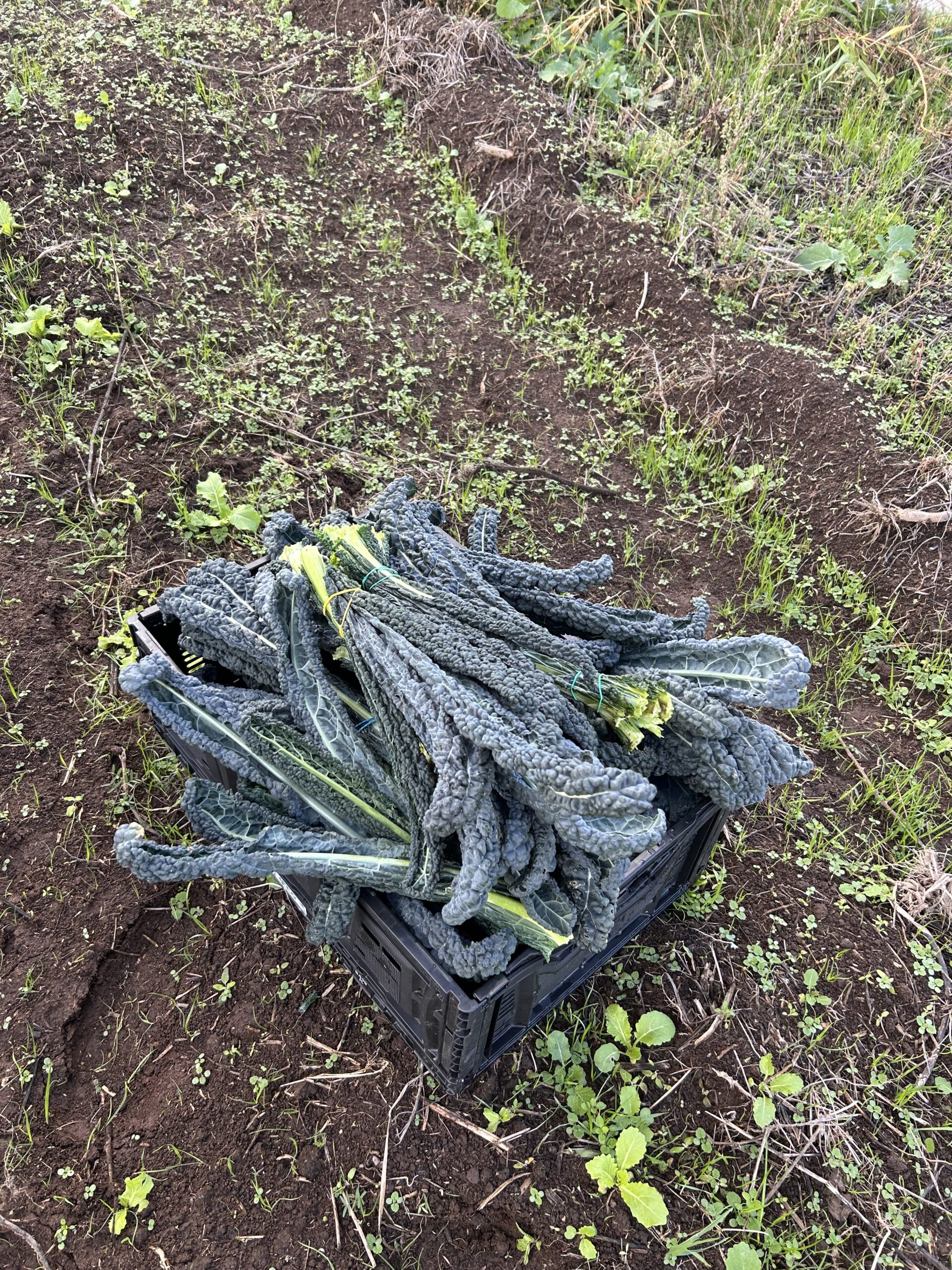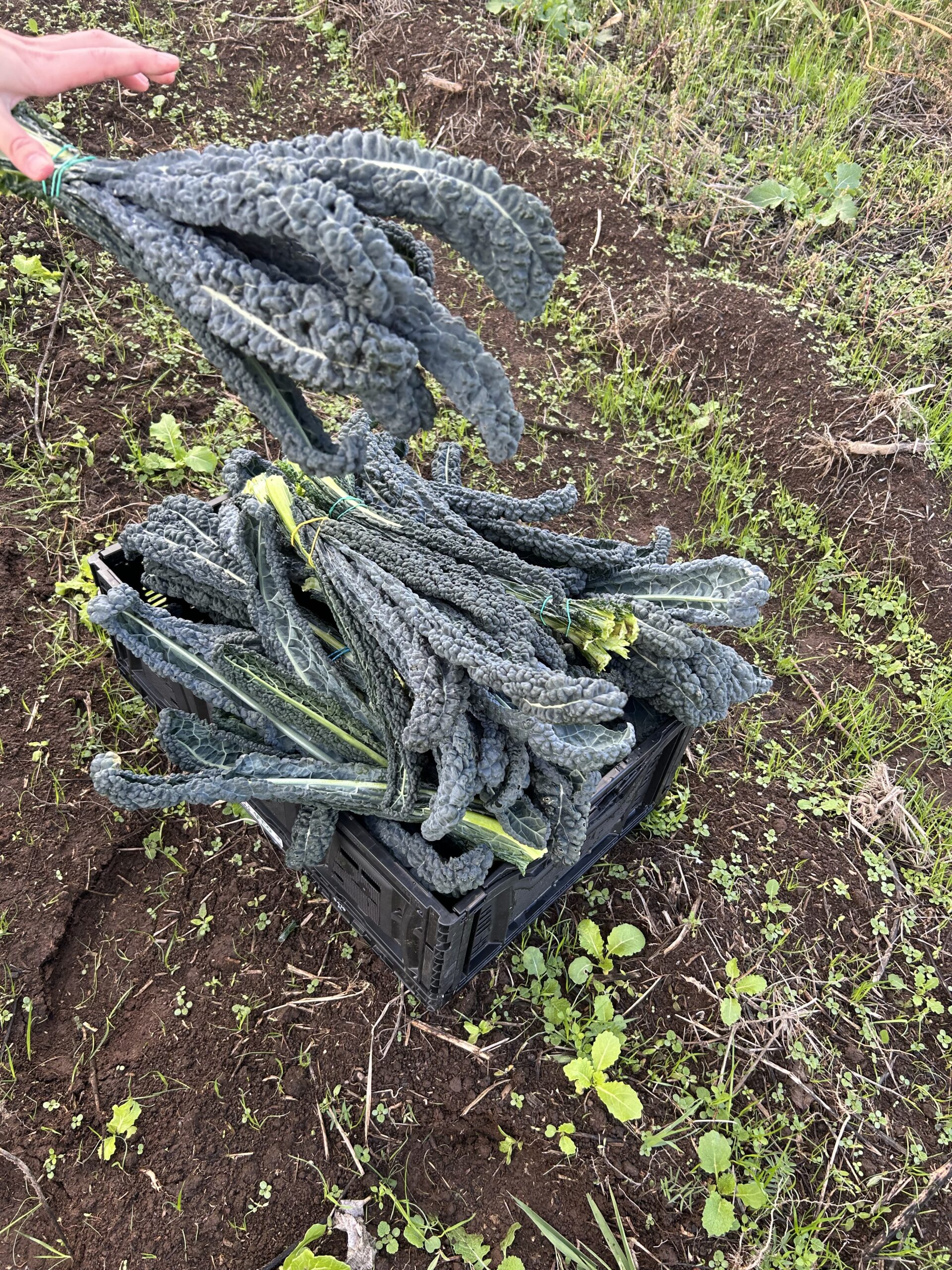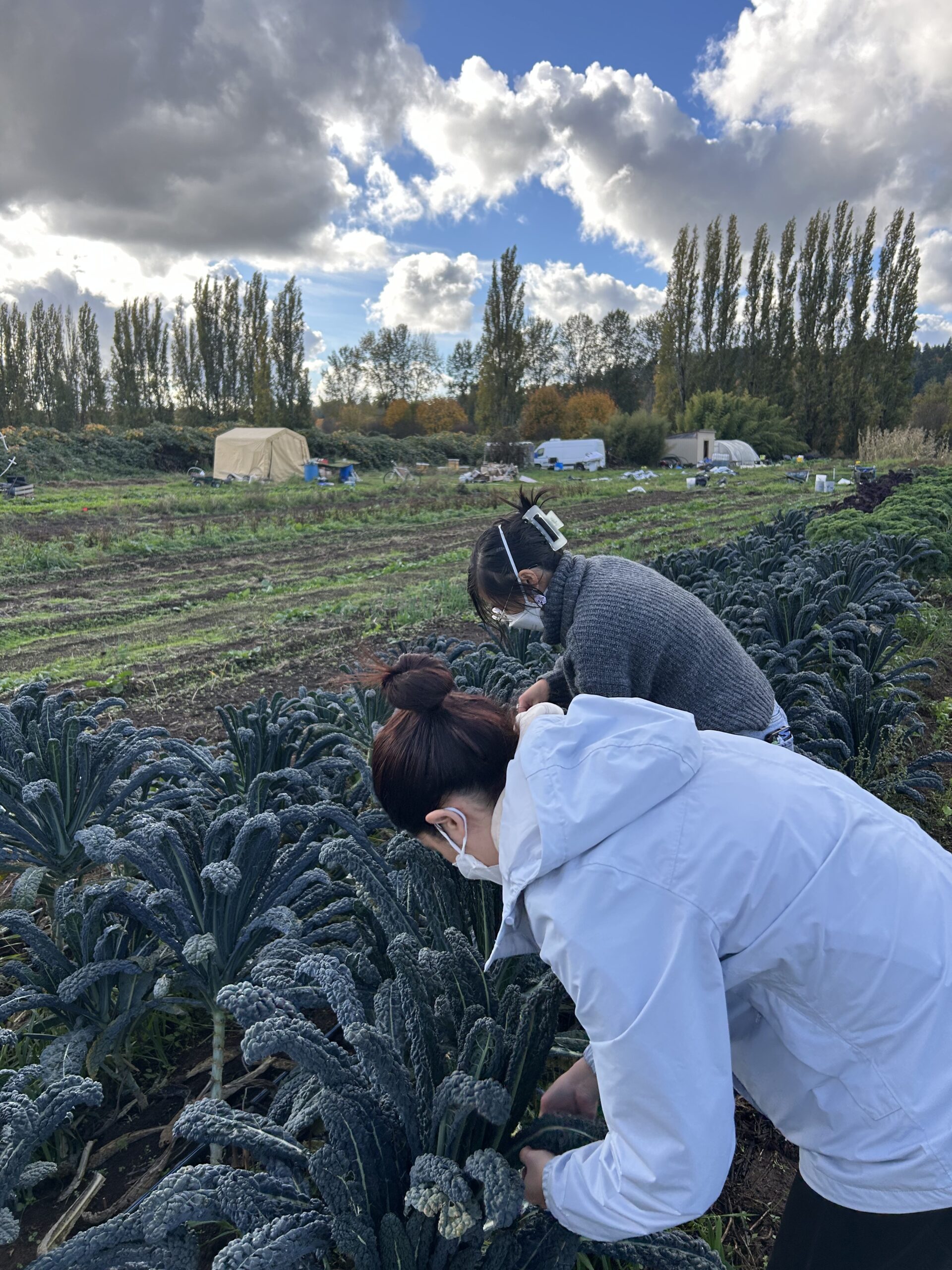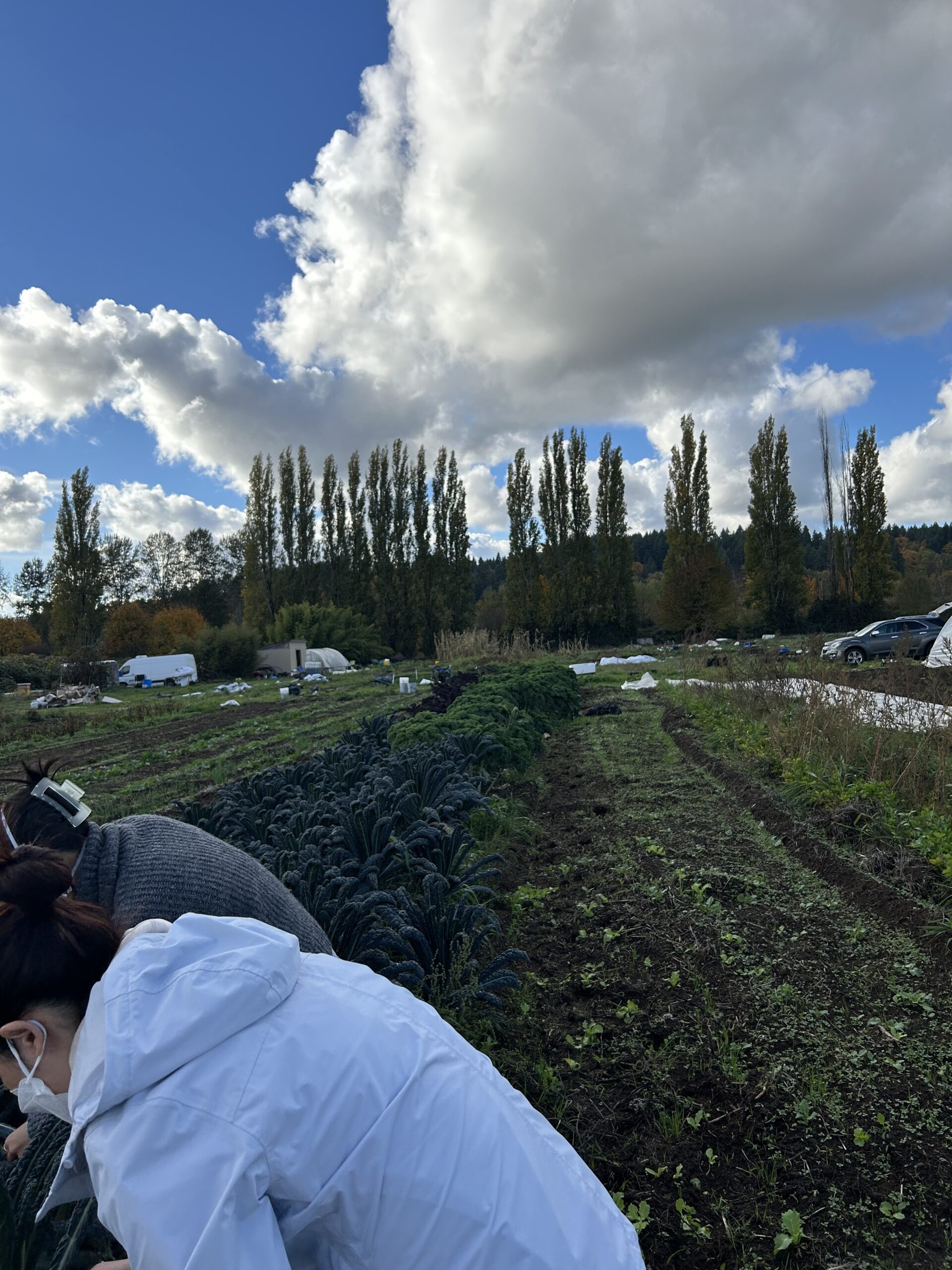This fall marked our launch of something brand new with our Student Organizers: a monthly Meal Kit and virtual community cooking night. October was our very first one, and we kicked it off with food that was seasonally sourced and chosen with intention. Each month, students will receive a kit of ingredients curated with care: always seasonal, always thoughtful, and always rooted in the idea that food connects us. Then we gather online to cook, learn, and share a meal together.
On a cold October afternoon, in kitchens across South Seattle and South King County, our FEEST fam gathered online to make Butternut Squash Curry together. You could almost smell it through your screen as onions and carrots softened in hot oil, garlic and ginger woke up the whole kitchen, coconut milk swirled into bright orange squash, and chickpeas and kale turned everything into a cozy pot that tasted like fall.
But this meal did not start with that first sizzle in the pan.
It started in the soil.
The meal that started in the soil
Before a single Zoom square opened, FEEST staff spent hours visiting local Black and Brown-led farms to gather ingredients for this dinner. The kale in students’ meal kits was not random produce from a store. It was grown by farmers we know by name.
We visited our friends at Small Axe Farm, part of the Black Farmers Collective, and met with Brukab and Masra. Some of us had never been to a farm before. We walked through rows of greens, listened to birds, and learned how farming is tied to people’s culture, migration stories, and dreams for their communities. Together with our farm friends, we harvested the kale that later ended up in our students’ pots.
We also visited our friend Beatrice’s farm in Enumclaw, where chickens wandered through the field and a huge frog greeted us near the edge of the beds. That is where some of the butternut squash for our meal came from, already harvested and waiting for us when we arrived.
Then we stopped at Ayeko Farm with Victor, a longtime farmer and friend. There, we picked up the smaller “baby” squash that some students found in their meal kits. We walked the land, cut herbs, and talked about making medicine with rosemary, ginger, and dandelion root to carry us through winter.
Every ingredient had a story.
Every name we spoke carried a little bit of gratitude.
By the time Meal Kit day arrived, our students were not just receiving “groceries.” They were cooking with food grown by local BIPOC farmers, held with care all the way from the field to their kitchens.
Swipe through to see photos from FEEST Staff harvesting produce for our October Meal Kit!

Image is of a flyer from 2017, showcasing FEEST’s Original Butternut Squash Curry Recipe trial!
Carrying forward a Youth-Designed Legacy
The recipe we chose for October was not random.
Several years ago, FEEST Student Organizers in the Highline School District partnered with district nutrition services to redesign what school lunch could look like. Young people crafted new recipes, ran taste tests in cafeterias, and gathered real feedback from their peers. Out of that work came a handful of youth-designed menu items that made it to the district-wide menu.
One of those recipes was Butternut Squash Curry.
That same spirit is what guided this night. As we chopped and stirred together on Zoom, we named that legacy out loud. Youth saw that they were not just following instructions from a recipe. They were standing in a long line of Student Organizers who had already changed what food at school could be.
We are still continuing that work, one pot at a time.
Cooking class, FEEST style
The night itself felt like classic FEEST energy.
Folks showed up as brave girlies right from the jump, turning on their cameras with aprons and cutting boards ready. Others stayed off camera but active in the chat, dropping emojis, asking questions, and cheering each other on.
There was a whole side conversation about rice techniques. Rice cooker vs stovetop. Knuckle measurements vs cuticle line. Someone washed their rice ten times. Someone else was making rice on their own for the first time in a while.
We walked through knife safety, how to dice onions without losing a fingertip, and how to peel garlic and ginger without losing your mind. Staff reminded everyone that there is no one “right” way to cook. There is the way your family taught you, the way you are experimenting with, and the way that works with what you have.
The curry came together step by step. Onions and carrots, then garlic and ginger. Broth, coconut milk, squash, a little sweet from honey or sugar. Chickpeas, then kale, simmered until everything turned tender.
People added their own twists. Tamarind. Chili garlic. Chicken drumsticks. Extra spices. More heat. Less sweet. The chat filled with updates about how it smelled, how it tasted, and who in the house was drifting over to ask for a bowl.
Even through the screen, it felt like we were standing side by side around one big stove.
Food as care, food as medicine
Throughout the night, staff and students kept connecting food back to care and to medicine. FEEST Staff, Hannah, and Ammara shared about making herbal honeys and bitters with leftover ginger, dandelion root, and flowers from the spring. We talked about how squash, kale, garlic, and onions are not just ingredients, but are a part of how our communities stay nourished during colder months.
Someone named what a privilege it is to know where your food comes from and to meet the people who grew it. Someone else talked about how intimidating cooking can feel when you are doing it alone, and how different it feels when you are cooking with people, even over Zoom.
That is the heart of these Meal Kits. We are not just sending out bags of produce. We are building spaces where young people can practice new skills, ask questions, make mistakes, laugh it off, and sit down to something they made with their own hands.
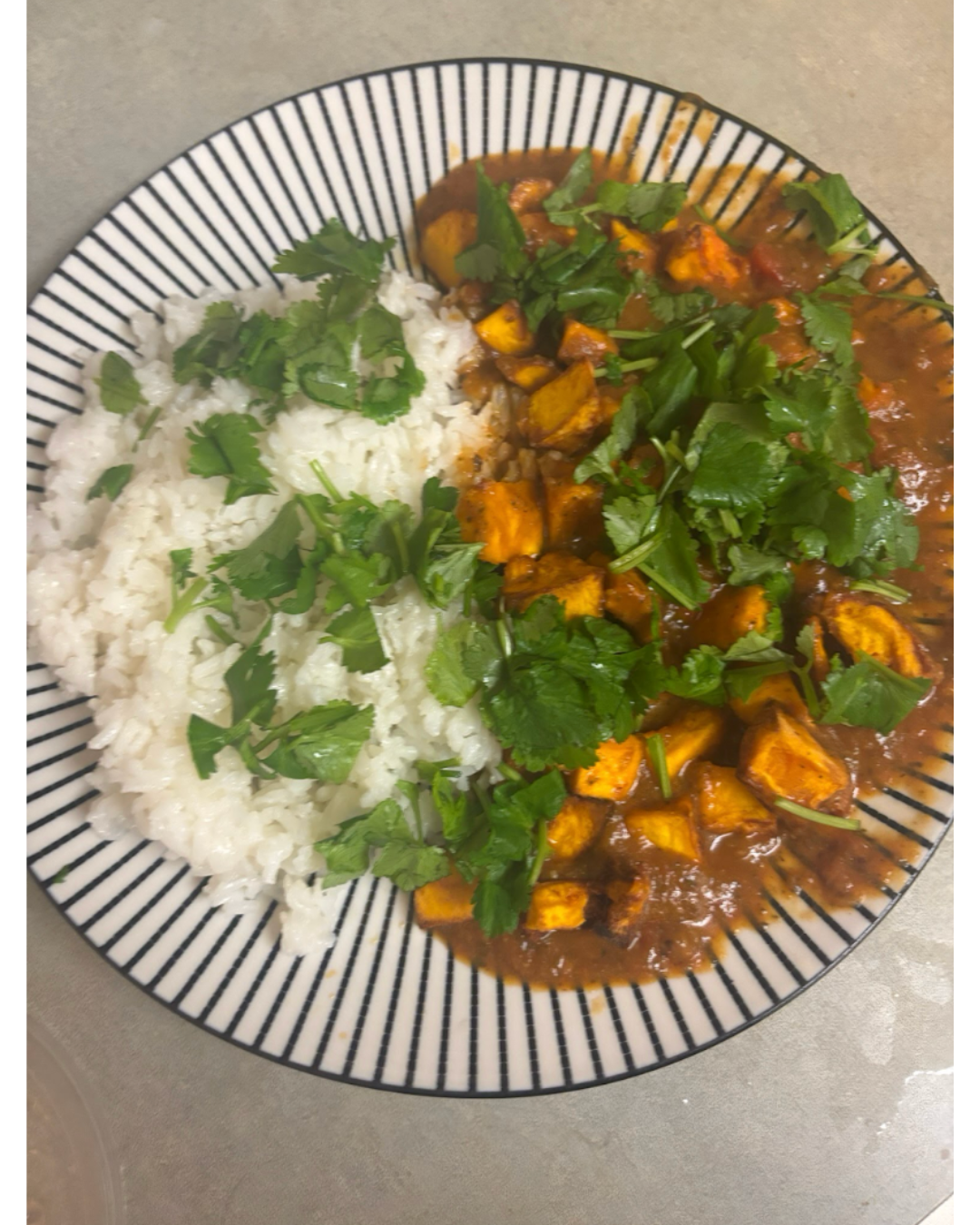
Image is of a finished bowl of Butternut Squash Curry by FEEST Student Organizer, Mariama!
What we are growing together
By the end of the night, folks held up bowls to their cameras, showing off bright orange curry, fluffy rice, and deep green kale. Some had family members drifting into the frame. Some were saving leftovers for the next day. Some were already brainstorming what we should cook next.
This one dinner held so many layers. The labor of local BIPOC farmers. The creativity of Student Organizers who helped design butternut squash curry for school cafeterias years ago. The care of staff who harvested ingredients themselves and packed them into meal kits. The courage of young people turning on cameras, asking questions, and trying something new.
We are grateful to everyone who made this night possible and to everyone who logged on and cooked with us.
We will be back in the kitchen together again soon. Until then, keep tending to your own meals, your own people, and your own piece of this larger movement.
Because every pot of curry, every shared recipe, and every night like this is one more way we grow the world we are fighting for.
Show FEEST some love!
Youth are in the lead at FEEST because we know that change is not effective unless those most impacted by health inequities are the decision makers. Support youth leadership by donating today, OR sign up for our newsletter to get the latest from FEEST!
